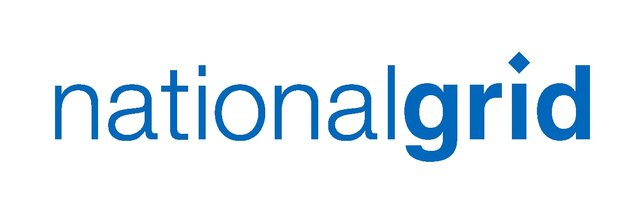Long Island, NY - January 13th, 2014 - As the Polar Vortex continued to usher in extreme cold throughout New York and New England over the past week, National Grid has set new records for natural gas delivery on Long Island and across its enterprise, which also includes systems New York City, Upstate New York, Rhode Island and Massachusetts.
Earlier this week the company reported that its 3.4 million natural gas customers had used nearly 4.56 billion cubic feet on January 3, topping the old system record by more than 68 million cubic feet. Three days later yet another new record was set when natural gas customers across the enterprise used over 4.79 billion cubic feet on January 7. Gas delivery to customers on Long Island again reached individual record levels, with over 951 million cubic feet delivered—up from the previous record of 848 million cubic feet set just days prior.
Throughout this period of peak and record demand, company officials have reported that the delivery system is performing extremely well thanks to capital investments National Grid has made over the past few years.
“While it’s impressive to see these record setting numbers, these are in fact the very circumstances we prepare for,” said Bill Akley, Senior Vice President, U.S. Gas Operations, National Grid. “We take our responsibility to deliver a safe and steady supply of natural gas to our customers very seriously, which is why we are proud that our delivery system across all our U.S. companies has been performing so well. We know that keeping our customers safe and warm is critical during this extreme weather and we will continue to work to ensure the future reliability of our systems.”
Total gas sent to customers on Tuesday were once again the second highest total on record for National Grid in both Massachusetts and Rhode Island—topping totals from the Friday before—and were also second highest in the company’s Brooklyn, Queens and Staten Island service areas in New York City. In the company’s upstate New York service areas, total gas in the system was the fourth highest on record for that region.
Customers who are currently using more natural gas than they normally would will likely see that increase in usage reflected in their next gas bill. As the extreme cold weather begins to ease, National Grid reminds customers of simple steps that can help conserve energy in order to better control heating costs.
Tune Up for Efficiency
- Maintaining an efficient heating system is an important step to conserving energy. Have your heating system serviced once every two years, and never try to repair it yourself.
- Have your chimney flue, space heaters, water heater and fireplace checked.
- If your heating system has a filter, clean or replace it every month during the heating season.
- Your furnace or boiler needs air to work properly (and efficiently). Don't close it off with walls, debris or other obstructions.
Turn Down for Savings
- For every 1°F you set your thermostat back, you can save one to three percent on your annual heating costs.
- Turn down the thermostat every time you leave the house for two or more hours, and every night before you go to bed. It takes less energy to warm up a cool house than to maintain a warm temperature all day and night.
- Installing an automatic setback thermostat is an inexpensive, easy way to maintain comfort and cut heating costs. You can program it to turn the heating system up and down at pre-set times.
Insulate
- Insulate your attic, walls, ceilings and floors to prevent heat escaping to the outdoors. Insulation improves your comfort as well as the efficiency of your home - and that means more savings for you.
- Apply the same principle to your personal comfort. Wear several layers of clothing to keep yourself warmer while keeping the thermostat down.
- Take advantage of the sun: open drapes during the day to capture warmth and close them at night to prevent heat loss through windows.
Seal Air Leaks
- Cold air let in by air leaks can increase your energy use, so seal all holes and cracks where cold air can get in.
- It's especially important to caulk windows and weatherstrip around door frames. Also, replace any broken panes on storm doors and windows.
- Other air-sealing tips including shutting off heat to unused rooms and closing the fireplace damper.
- Remove window air conditioning units during the cold months to reduce drafts. If this isn't possible, cover the inside and outside of the unit with plastic.
- You can also move furniture to warmer spots in the room to avoid cold drafts and stay more comfortable.
About National Grid
National Grid (LSE: NG; NYSE:NGG) is an electricity and gas company that connects consumers to energy sources through its networks. The company is at the heart of one of the greatest challenges facing our society - to create new, sustainable energy solutions for the future and developing an energy system that underpins economic prosperity in the 21st century. National Grid holds a vital position at the center of the energy system and it ‘joins everything up’.
In the northeast US, we connect more than seven million gas and electric customers to vital energy sources, essential for our modern lifestyles. In Great Britain, we run the gas and electricity systems that our society is built on, delivering gas and electricity across the country.
National Grid delivers electricity to approximately 3.3 million customers in Massachusetts, New York and Rhode Island. It manages the electricity network on Long Island under an agreement with the Long Island Power Authority (LIPA), and owns over 4,000 megawatts of contracted electricity generation, providing power to over one million LIPA customers. It is the largest distributor of natural gas in northeastern U.S., serving approximately 3.4 million customers in New York, Massachusetts, and Rhode Island.
For more information please visit our website: www.nationalgridus.com.










